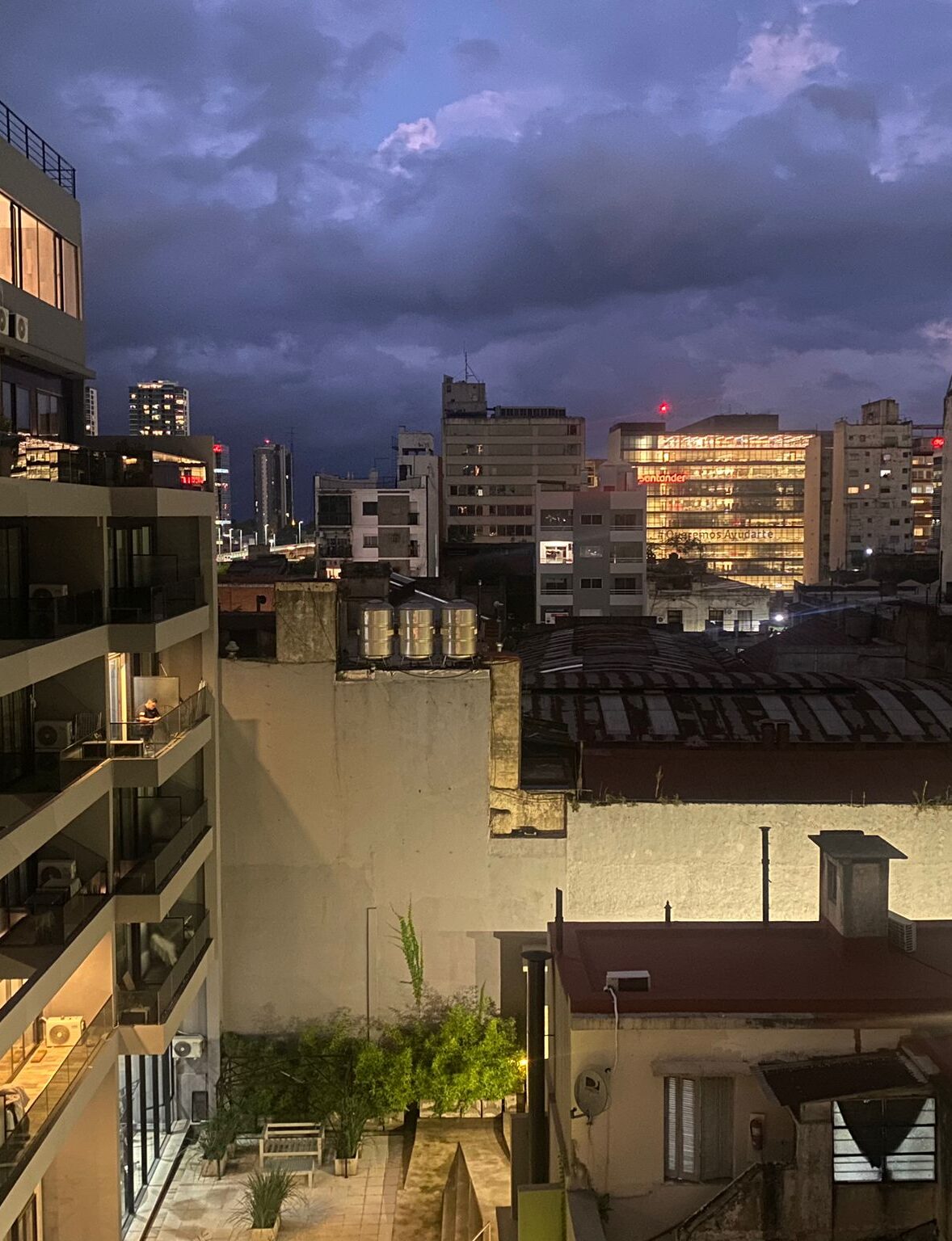I have been painting chairs this summer. It is my second summer visiting my boyfriend at his country house in the Catskills, though it’s not only my boyfriend’s house. The house belongs to him and his wife. I am here because his wife is dead. She passed away two and a half years ago, and her death sometimes feels as blunt and brutal as the undeniable fact that the phrase “passed away” is trying to soften. I didn’t know her, but she was a powerful woman who died too young and left behind an adolescent son and a husband of twenty years.
Loving someone who has such loyalty to the one who came before is not without complications. This house is filled with photos of his wife, the two of them with their son, aglow with the happiness of a good marriage. They had one child and the sense I get is that this boy completed their world. The three of them created a perfect geometry for each other. I also have adolescent children, but their father is alive. He and I were not the perfect geometry for each other, and there are no framed photos of my married life in my home anymore.
The bedroom here has a special place for her, a shrine he has made in this era of non-denominational invention. There are photos of her, photos of the two of them, and objects of personal significance: a postcard, a shell. I don’t need to ask or be told the stories there. It is an act of love and an expression of grief; and since it is under the window opposite the bed it is the first thing I see every morning when I wake up. I know enough of grieving to understand that there is no linear time that applies to deep loss. I wondered if the shrine would still be in the bedroom this summer, when I came to spend a month in the country. When I saw that it was, I said nothing. It is private and I never touch it, yet I am sleeping with her as well.
I would be even if the shrine was packed away.
We both have dreams about her. Guilty dreams—he will dream that she is still alive but he is having an affair with me. I dream that I just found out he is married, and I can’t believe I have been so stupid. Sometimes my dreams are driven by jealousy. She is calling on the phone and the two of them are laughing at jokes that come of a shared history, he is running to get his son on the phone to speak to her. In this dream I am in the room but he is not thinking about me at all, he simply ignores me.
I am painting chairs. I found some old chairs in the barn and had the idea that putting them around this rough property would be an invitation to sit and look at the stream, or read by the pond. It would be a surprise to visitors, an unexpected color. My boyfriend is an abstract painter but this is my project. He watched me forget to prime a dark wooden chair and said nothing as I layered on three coats of yellow paint and still didn’t get the smooth enamel I wanted. I buy “mis-mixed” paint for cheap from the hardware store and he makes no comment on my color choices. The chairs get painted and then they go outdoors. We joke that it’s my art installation, and when a new one is finished I surprise him with where I’ve placed it in the landscape. He says it makes him happy to see the chairs. He says that I make him happy.
Of course we talk about her. I talk about my ex and we talk about our children. This is real life and we no longer have the fearlessness of youth, when you moved in together because you were spending every night in each other’s arms and the rent was cheaper that way; in some instances this developed into marriage and children. Sometimes I wish we were both that fearless again, but even if all the children were grown and gone, when he says “we” he usually means himself and his wife.
I sometimes feel like a bird perched on the edge of a nest that was built by another. I look down into that circle of twigs and hair, soft scraps of cloth scavenged from the yard. I wonder if there is room for me to fit inside. I try to choose my words carefully, though I sometimes fail and he does as well. We each work alone and share the tasks that shape the days: gardening, cooking and washing up. I think about the silences between us as negative space in a painting, shaping what is there.
I paint another chair and put it out in the field. He will go on a walk to find it on his own.
Rebecca Chace is the author of: Leaving Rock Harbor (novel); Capture the Flag (novel); Chautauqua Summer (Memoir). She is director of creative writing at Fairleigh Dickinson University and 2014 recipient Grace Paley Fiction Fellowship at Vermont Studio Center.




